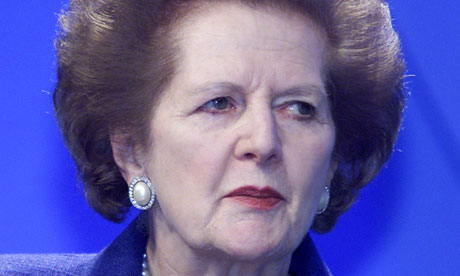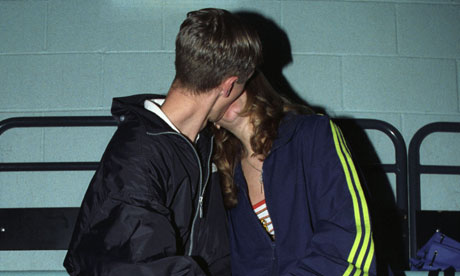The dictate that one 'not speak ill of the dead' is (at best) appropriate for private individuals, not influential public figures

Margaret Thatcher Photograph: Don Mcphee
News of Margaret Thatcher's death this morning instantly and predictably gave rise to righteous sermons on the evils of speaking ill of her. British Labour MP Tom Watsondecreed: "I hope that people on the left of politics respect a family in grief today." Following in the footsteps of Santa Claus, Steve Hynd quickly compiled a list of all the naughty boys and girls "on the left" who dared to express criticisms of the dearly departed Prime Minister, warning that he "will continue to add to this list throughout the day". Former Tory MP Louise Mensch, with no apparent sense of irony, invoked precepts of propriety to announce: "Pygmies of the left so predictably embarrassing yourselves, know this: not a one of your leaders will ever be globally mourned like her."
This demand for respectful silence in the wake of a public figure's death is not just misguided but dangerous. That one should not speak ill of the dead is arguably appropriate when a private person dies, but it is wildly inappropriate for the death of a controversial public figure, particularly one who wielded significant influence and political power. "Respecting the grief" of Thatcher's family members is appropriate if one is friends with them or attends a wake they organize, but the protocols are fundamentally different when it comes to public discourse about the person's life and political acts. I made this argument at length last year when Christopher Hitchens died and a speak-no-ill rule about him was instantly imposed (a rule he, more than anyone, viciously violated), and I won't repeat that argument today; those interested can read my reasoning here.
But the key point is this: those who admire the deceased public figure (and their politics) aren't silent at all. They are aggressively exploiting the emotions generated by the person's death to create hagiography. Typifying these highly dubious claims about Thatcher was this (appropriately diplomatic) statement from President Obama: "The world has lost one of the great champions of freedom and liberty, and America has lost a true friend." Those gushing depictions can be quite consequential, as it was for the week-long tidal wave of unbroken reverence that was heaped on Ronald Reagan upon his death, an episode that to this day shapes how Americans view him and the political ideas he symbolized. Demanding that no criticisms be voiced to counter that hagiography is to enable false history and a propagandistic whitewashing of bad acts, distortions that become quickly ossified and then endure by virtue of no opposition and the powerful emotions created by death. When a political leader dies, it is irresponsible in the extreme to demand that only praise be permitted but not criticisms.
Whatever else may be true of her, Thatcher engaged in incredibly consequential acts that affected millions of people around the world. She played a key role not only in bringing about the first Gulf War but also using her influence to publicly advocate for the 2003 attack on Iraq. She denounced Nelson Mandela and his ANC as "terrorists", something even David Cameron ultimately admitted was wrong. She was a steadfast friend to brutal tyrants such as Augusto Pinochet, Saddam Hussein and Indonesian dictator General Suharto ("One of our very best and most valuable friends"). And as my Guardian colleague Seumas Milne detailed last year, "across Britain Thatcher is still hated for the damage she inflicted – and for her political legacy of rampant inequality and greed, privatisation and social breakdown."
To demand that all of that be ignored in the face of one-sided requiems to her nobility and greatness is a bit bullying and tyrannical, not to mention warped. As David Wearing put it this morning in satirizing these speak-no-ill-of-the-deceased moralists: "People praising Thatcher's legacy should show some respect for her victims. Tasteless." Tellingly, few people have trouble understanding the need for balanced commentary when the political leaders disliked by the west pass away. Here, for instance, was what the Guardian reported upon the death last month of Hugo Chavez:
" To the millions who detested him as a thug and charlatan, it will be occasion to bid, vocally or discreetly, good riddance."
Nobody, at least that I know of, objected to that observation on the ground that it was disrespectful to the ability of the Chavez family to mourn in peace. Any such objections would have been invalid. It was perfectly justified to note that, particularly as the Guardian also explained that "to the millions who revered him – a third of the country, according to some polls – a messiah has fallen, and their grief will be visceral." Chavez was indeed a divisive and controversial figure, and it would have been reckless to conceal that fact out of some misplaced deference to the grief of his family and supporters. He was a political and historical figure and the need to accurately portray his legacy and prevent misleading hagiography easily outweighed precepts of death etiquette that prevail when a private person dies.


